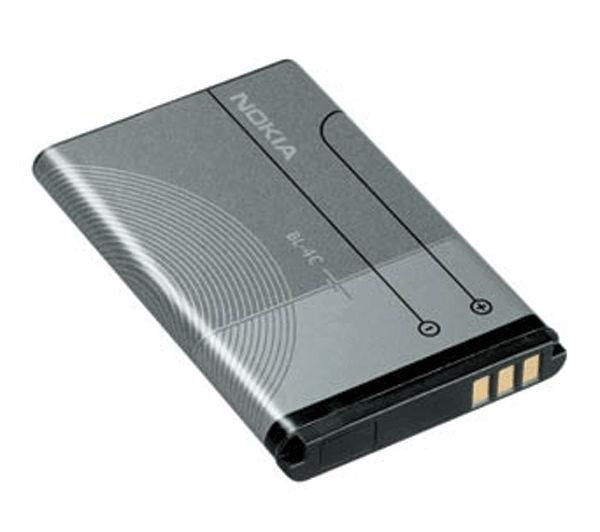Recharge A Battery in Seconds
Could it be possible to recharge batteries in seconds rather than hours? Apparently, that's a definite "yes" according to MIT engineers after creating an electrical beltway.

Could it be possible to recharge batteries in seconds rather than hours? That's a definite "yes" according to MIT engineers after creating an electrical beltway.
Although hooking up a power adapter to a cell phone or iPod -and waiting for what seems like forever for the devices to recharge- is a part of everyday living, wouldn't it be just grand if those devices could recharge on the fly? Instead of thirty minutes or an hour, they'd power up in ten or fifteen seconds? Cutting down battery recharge time -while saving valuable consumer time- would change the lifestyle of every individual on the face of the planet, whether they're juicing up Sony's PlayStation Portable or keeping YouTube on the laptop from blacking out.
For a group of MIT engineers, that's exactly what they set out to do: re-engineer the surface of lithium iron phosphate to ultimately create an efficient, electrical beltway for lithium ions to use. Because state-of-the art rechargeable batteries have relatively low power rates despite their high energy densities, researchers once thought that lithium ions (and electrons) moved too slowly through the battery material. However, Gerbrand Ceder, the Richard P. Simmons Professor of Materials Science and Engineering, also head of the current project, said that the ions themselves should actually be moving very quickly according to computer calculations. Thus, he concluded that something else was causing the slowdown.
Further study showed that the lithium ions indeed moved extremely fast into the battery material, but only by way of surface tunnels if set directly in the path of the lithium ions; those that did not enter surface tunnels did not pass into the material. The new surface created by Ceder and Byoungwoo Kang, a graduate student, allows the lithium ions to move across the material as if on the beltway of a major city, getting off at the next exit -a surface tunnel- rather than halting altogether.
By utilizing this newly re-engineered material, Ceder and Kang created a small battery that could be fully recharged or discharged in 10 to 20 seconds- a fraction of the time it takes to recharge a battery cell made from the original, unprocessed material. As an additional benefit, the new material degrades far less than current rechargeable batteries when repeatedly charged and recharged. And because less material is needed for the same end result, consumers would benefit from a lighter, smaller battery.
"The ability to charge and discharge batteries in a matter of seconds rather than hours may open up new technological applications and induce lifestyle changes," Ceder and Kang conclude. Apparently, the re-engineered material can also be applied to electric car batteries although they would be limited to the amount of power available on the consumer's electric grid.
Still, faster recharge times would make the world a better place. Unfortunately, the re-engineered rechargeable batteries won't see the light of day -or at least the hands of consumers- for another two or three years.
Sign up to get the BEST of Tom's Guide direct to your inbox.
Get instant access to breaking news, the hottest reviews, great deals and helpful tips.
Kevin started taking PCs apart in the 90s when Quake was on the way and his PC lacked the required components. Since then, he’s loved all things PC-related and cool gadgets ranging from the New Nintendo 3DS to Android tablets. He is currently a contributor at Digital Trends, writing about everything from computers to how-to content on Windows and Macs to reviews of the latest laptops from HP, Dell, Lenovo, and more.
-
hillarymakesmecry This is fantastic news. Then we could charge up an electric car at high power high voltage stations in like 5 minutes instead of 9 hours. Gasoline will be history. Thanks Venezula and Iran, your domination of the worlds most valuable resource is comming to an end. We won't really need it as much anymore.Reply -
jacobdrj Gasoline will never be 'history', because it is a phenominal distributed high energy controllable source of energy (stored solar power). However, it's mainstream consumer consumption should decrease, assuming we have a better way of harnesing solar energy through either wind, water, or direct solar power. Otherwise, we will just be exchanging automotive gas consumption with point source generator crude consumption...Reply -
pbrigido Not to be a downer, but over the years I have heard lots of promises regarding new battery technology. Sadly, none of it has lived up to its hype. Don't get me wrong, I would love to have a battery get a full charge that quickly, I just wouldn't get your hopes up quite yet.Reply -
jp182 thats not to say that battery tech hasnt improved over the years. Batteries are last much longer than they used to; we just keep finding faster ways to burn that energy.Reply -
StupidRabbit This would be awesome.. i would just have to find a socket and plug my laptop in for 30 seconds and voila. Ofcourse i would have to wait a couple of years for it to get mainstream.. unless lenovo decides to start making them tomorrow.Reply -
jacobdrj Yeah, I was wondering why it took THG so long to post this. But better late and accurate than early and wrong.Reply -
magicandy Hey look another MIT breakthrough battery tech we won't see for another 10 years because the large battery producing corporations are making enough money keeping mainstream tech at a snail's pace. Stretch it out, it'll last longer. *eyeroll*Reply
Just think of how advanced we could be if we used a resource-based economy rather than crippling progress without our money-based economy. Things like this would be incorporated into every day life much more quickly, rather than waiting years and years for a company to decide that it has made enough money stalling the old tech. Lose the money, change the incentive for humanity.
